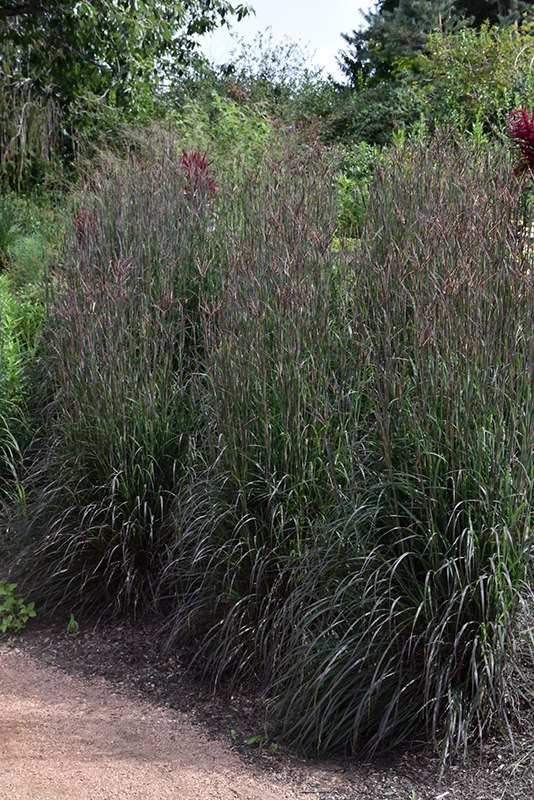Holy Smoke Bluestem
Andropogon gerardii 'Holy Smoke'
Height: 5 feet
Spread: 24 inches
Sunlight:
![]()
Hardiness Zone: 2a
Other Names: Big Bluestem, Turkey Foot
Description:
This selection of native prairie grass has an impressive stature and beautiful seasonal foliage that emerge gray-green, develop to green and finally turn purple-pink in the fall; plant in full sun for best color; an excellent screen or border plant
Ornamental Features
Holy Smoke Bluestem is primarily grown for its highly ornamental fruit. The plum purple seed heads are carried on showy plumes displayed in abundance from late summer to early fall. Its attractive grassy leaves emerge grayish green in spring, turning green in color. As an added bonus, the foliage turns gorgeous shades of burgundy, deep purple and rose in the fall. The red stems can be quite attractive.
Landscape Attributes
Holy Smoke Bluestem is an herbaceous perennial grass with an upright spreading habit of growth. It brings an extremely fine and delicate texture to the garden composition and should be used to full effect.
This is a relatively low maintenance plant, and is best cut back to the ground in late winter before active growth resumes. It has no significant negative characteristics.
Holy Smoke Bluestem is recommended for the following landscape applications;
- Vertical Accent
- Mass Planting
- Hedges/Screening
- General Garden Use
Planting & Growing
Holy Smoke Bluestem will grow to be about 4 feet tall at maturity, with a spread of 24 inches. It tends to be leggy, with a typical clearance of 1 foot from the ground, and should be underplanted with lower-growing perennials. It grows at a medium rate, and under ideal conditions can be expected to live for approximately 10 years. As an herbaceous perennial, this plant will usually die back to the crown each winter, and will regrow from the base each spring. Be careful not to disturb the crown in late winter when it may not be readily seen!
This plant should only be grown in full sunlight. It is an amazingly adaptable plant, tolerating both dry conditions and even some standing water. It is considered to be drought-tolerant, and thus makes an ideal choice for a low-water garden or xeriscape application. It is not particular as to soil type or pH, and is able to handle environmental salt. It is highly tolerant of urban pollution and will even thrive in inner city environments. This is a selection of a native North American species. It can be propagated by division; however, as a cultivated variety, be aware that it may be subject to certain restrictions or prohibitions on propagation.
A NetPS Plant Finder tool


